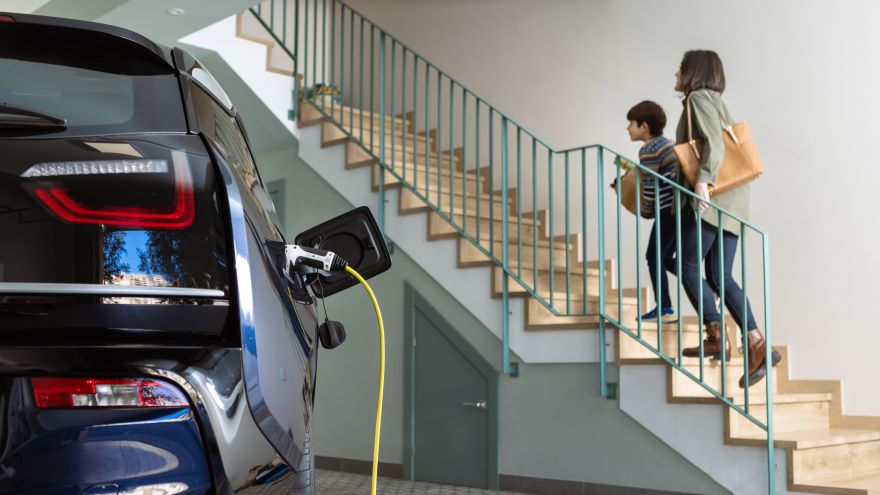Duke Energy to begin EV charging subscription pilot program in NC

By subscribing, you agree to receive communications from Auto Remarketing and our partners in accordance with our Privacy Policy. We may share your information with select partners and sponsors who may contact you about their products and services. You may unsubscribe at any time.
Electric utility company Duke Energy has teamed with General Motors, Ford Motor Company and BMW of North America on a pilot program aimed at providing cost certainty for electric vehicle charging in North Carolina.
Duke Energy’s 12-month EV Complete Home Charging Plan pilot will allow N.C. residential customers to use up to 800 kilowatt-hours per month to charge an EV at home for a fixed monthly fee of $19.99 in its Duke Energy Carolinas service area and $24.99 in its Duke Energy Progress service area.
Duke Energy said because the average EV driver uses less than 15 kWh per day, the program will provide nearly twice the amount of power per month needed by the average driver.
Customers who own or lease a qualifying EV will receive an invitation from their vehicle’s manufacturer to participate, and can enroll in the program starting in September.
Additional enrollment details will be provided to participants ahead of the program launch on Nov. 1.
“North Carolina has ambitious goals to reduce greenhouse gas emissions and we’re supporting those efforts,” Duke Energy North Carolina state president Kendal Bowman said in a news release. “Increasing the number of EVs while reducing the number of gas-powered vehicles on the road will help our state move closer to carbon neutrality.”
Subscribe to Auto Remarketing to stay informed and stay ahead.
By subscribing, you agree to receive communications from Auto Remarketing and our partners in accordance with our Privacy Policy. We may share your information with select partners and sponsors who may contact you about their products and services. You may unsubscribe at any time.
Customers will be able to input their desired state of charge and preferred departure time using an app provided by their automaker that then creates a charging schedule to optimize their preferred EV charging times.
Duke Energy’s partnership with GM, Ford and BMW is a part of the Open Vehicle Grid Integration Platform, which enables the management of EV charging from multiple automakers and allows Duke Energy to measure customer charging data directly from the enrolled vehicles.
Each automaker owns and manages its own charging app that communicates through OVGIP.
“The average EV owner is already saving about $1,000 per year on fuel costs compared to a traditional vehicle — a predictable monthly subscription charge on top of that is going to ensure predictable savings when charging,” Bowman said.
“Beyond cost savings, EV charging at home tends to be convenient because drivers can leave the house with a fully charged vehicle and lessen the number of trips to public charging stations.”
Duke Energy will be able to encourage EV charging to take place when the grid has available capacity, which it called an important component of the program, by calling up to three demand response events per month to help balance grid demand.
Demand response notifications will be communicated to pilot participants by the automakers at least 12 hours in advance and include the date and hours to avoid charging an EV. Participants may opt out of demand response events up to four times during the pilot.
“EV charging has the added benefit of flexibility, meaning charging can be managed — such as shifting charging to off-peak hours — which is important in limiting cost increases and mitigating peak demands,” Duke Energy executive vice president of customer experience Harry Sideris said.


